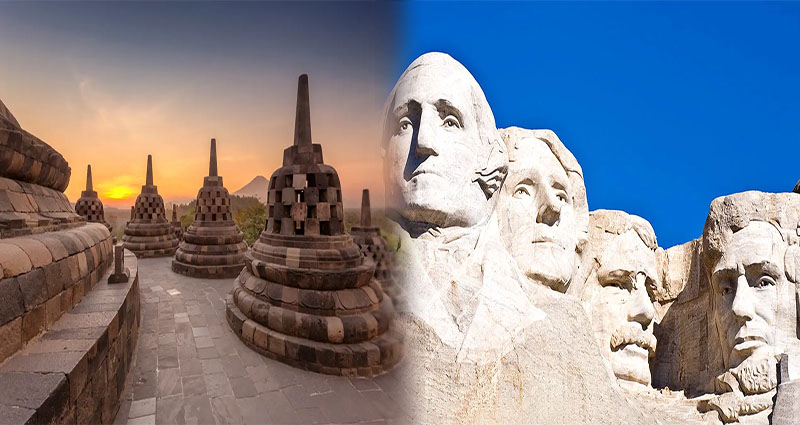Historical monuments are architectural marvels that stand as testaments to human creativity, culture, and heritage. These iconic structures have withstood the test of time and hold significant historical, cultural, and symbolic value. Here are some famous historical monuments from around the world and their significance:
1. Taj Mahal, India
- Significance: The Taj Mahal is one of the most famous monuments in the world and is revered as a symbol of love. Built by Emperor Shah Jahan in memory of his wife Mumtaz Mahal, the white marble mausoleum is an architectural masterpiece and a UNESCO World Heritage Site.
2. Great Wall of China
- Significance: The Great Wall of China is an ancient fortification that stretches over 13,000 miles across China. Built to protect Chinese states and empires from invasions, it symbolizes China’s rich history and engineering prowess.
3. Eiffel Tower, France
- Significance: The Eiffel Tower is an iconic symbol of Paris and a marvel of architectural ingenuity. Built for the 1889 World’s Fair, it was initially criticized but has since become a beloved landmark and a testament to France’s artistic and engineering achievements.
4. Pyramids of Giza, Egypt
- Significance: The Pyramids of Giza are among the most famous archaeological sites in the world. Built as tombs for the pharaohs, these ancient structures represent the grandeur and mystique of ancient Egypt’s civilization.
5. Statue of Liberty, United States
- Significance: A gift from France to the United States, the Statue of Liberty is a symbol of freedom and democracy. Located in New York Harbor, it welcomes immigrants and visitors to America and stands as a beacon of hope and opportunity.
6. Machu Picchu, Peru
- Significance: Machu Picchu is an ancient Incan city located in the Andes Mountains of Peru. Built in the 15th century, it is a UNESCO World Heritage Site and a marvel of Incan architecture, engineering, and astronomy.
7. Acropolis of Athens, Greece
- Significance: The Acropolis of Athens is a renowned ancient citadel perched on a rocky hill above Athens. It is home to several historic buildings, including the iconic Parthenon, and symbolizes the birthplace of democracy and western civilization.
8. Colosseum, Italy
- Significance: The Colosseum in Rome is an ancient amphitheater that hosted gladiatorial contests and spectacles. A symbol of Roman engineering and entertainment, it is one of Italy’s most visited attractions and a UNESCO World Heritage Site.
Historical monuments are not just architectural wonders but also repositories of history, culture, and artistry. They serve as reminders of human achievements, cultural heritage, and the enduring legacy of civilizations. Visiting these famous historical monuments allows us to connect with the past, appreciate the beauty of different cultures, and marvel at the architectural wonders of our world.










